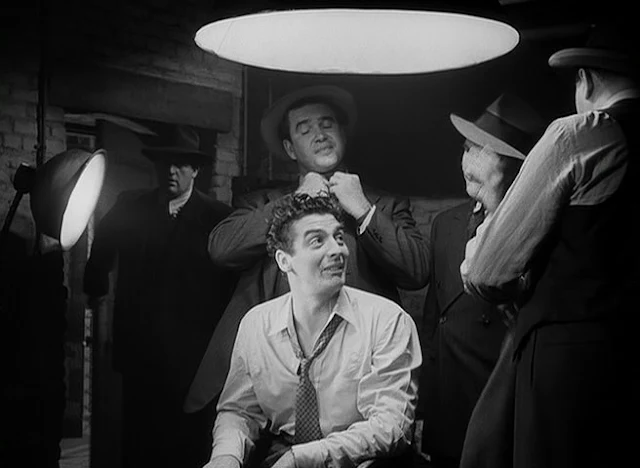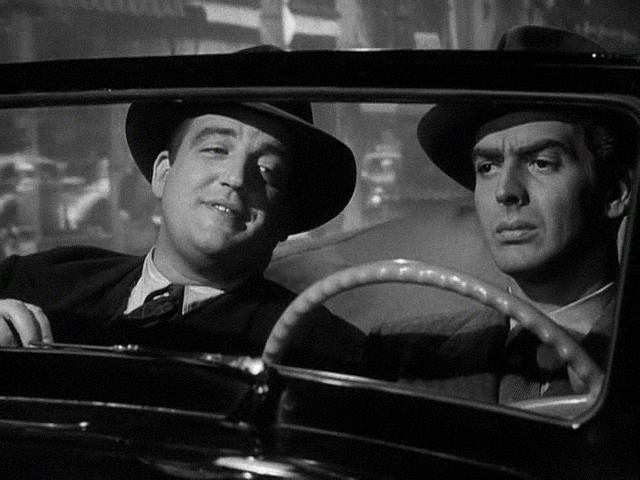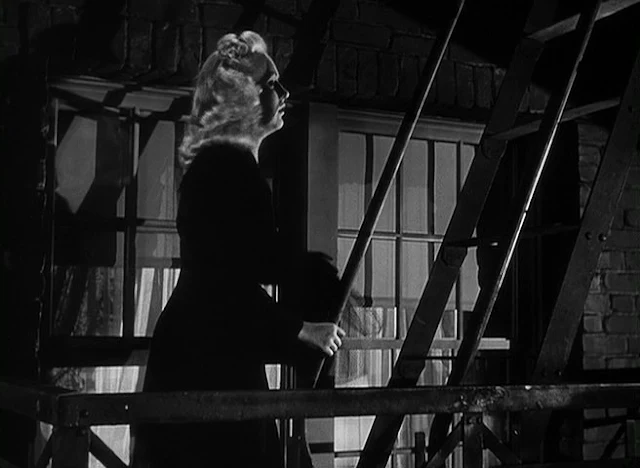I Wake Up Screaming (H. Bruce Humberstone, 1941)
Cast: Victor Mature, Betty Grable, Carole Landis, Laird Cregar, William Gargan, Alan Mowbray, Allyn Joslyn, Elisha Cook Jr., Morris Ankrum, Charles Lane, Frank Orth, Gregory Gaye, Chick Chandler, Cyril Ring, May Beatty.
Screenplay: Dwight Taylor,
based on a novel by Steve Fisher.
Cinematography: Edward Cronjager.
Art direction: Richard Day, Nathan Juran.
Film editing: Robert L. Simpson.
Music: Cyril J. Mockridge.
I Wake Up Screaming, in which no one actually wakes up screaming, was not one of 20th Century Fox's priority projects in 1941, witness the fact that it was assigned to one of the studio's second-string directors, H. Bruce Humberstone, who was usually in charge of B-movies like the Charlie Chan films. Even its stars were not of the first rank: Betty Grable would become famous for her "gams" as the GIs' pin-up girl during the coming war, but she had mostly been a decorative element, not a leading lady, in her previous movies. Victor Mature had been in movies for only a year, having worked with Carole Landis in Hal Roach's caveman saga
One Million B.C. in 1940. The studio didn't bother with an original score for the film, instead hiring Cyril J. Mockridge to orchestrate the theme music Alfred Newman had composed for King Vidor's 1931 film
Street Scene, along with a love theme adapted from the Oscar-winning song Harold Arlen and E.Y. Harburg had composed for
The Wizard of Oz (Victor Fleming, 1939). Today, the reiterations of "Over the Rainbow" against the murder mystery background are among the more unintentionally unsettling things about
I Wake Up Screaming, which Fox initially released under another title,
Hot Spot. Given all this uncertainty, it's surprising that the movie works as well as it does, generating some real suspense and keeping its plot twists concealed until the right moment. Probably its greatest strength lies not in the performances of its leads, though Mature in particular is perfectly fine, but in that of Laird Cregar, as the sinister cop who wants to pin the murder of Landis's Vicky Lynn on Mature's Frankie Christopher. Cregar is a true heavy in every sense of the word, his bulk playing off well against Mature's own large presence. Cinematographer Edward Cronjager works well with shadows, which has earned
I Wake Up Screaming a reputation as one of the first American film noirs. Humberstone unfortunately doesn't have the noir touch, and undermines Cronjager's efforts with some attempts at lightening up the mood, including a silly detour into a swimming pool scene that doesn't do much other than give Grable an opportunity to show off her legs and Mature to bare his chest. But all in all, it's a better film than most of the people connected with it had any right to expect.






















